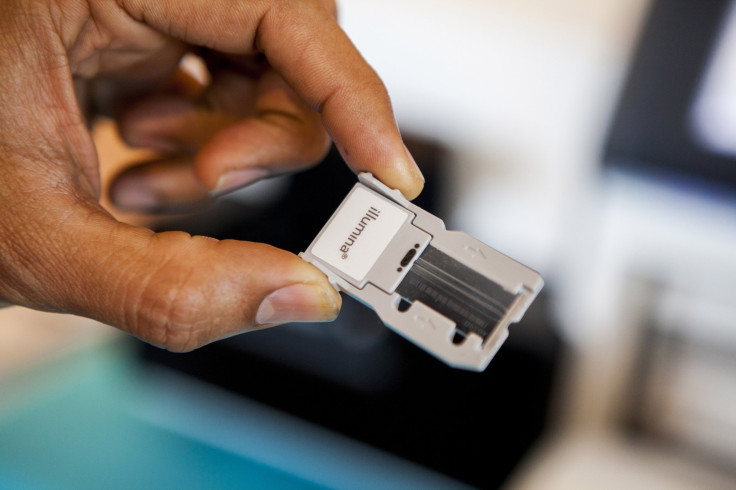Illumina Launches New Company To Develop Gene-Based Blood Test To Detect Early-Stage Cancers

Illumina, the world’s largest manufacturer of DNA sequencing machines, announced Sunday the formation of a new company that will develop blood tests that can detect a broad variety of early stage cancers long before symptoms arise. The new company, named Grail, has so far raised $100 million, mostly from Illumina and venture capital firm Arch Venture Partners, but also from Microsoft co-founder Bill Gates, and Amazon founder Jeff Bezos.
“The holy grail in oncology has been the search for biomarkers that could reliably signal the presence of cancer at an early stage,” Richard Klausner, a former director of the National Cancer Institute who is now a member of the new company’s board of directors, said in a statement released Sunday. “Illumina’s sequencing technology now allows the detection of circulating nucleic acids originating in the cancer cells themselves, a superior approach that provides a direct rather than surrogate measurement.”
The pan-cancer screening test, which the San Diego-based Illumina said should reach markets by 2019, aims to detect the disease through a technique sometimes called a liquid biopsy. The procedure, which uses high-speed DNA sequencing machines to scour a person’s blood for mutated DNA fragments released by cancer cells, is currently used only for patients already known to have cancer. If DNA with cancer-causing mutations is present in the blood, it often indicates a tumor is already forming, even if it’s too small to cause symptoms.
In the United States, despite a steady drop in cancer deaths over the past few decades, the disease still remains the leading cause of death in 21 states, and the second leading cause — after heart disease — nationwide.
Since the technique being pursued by Illumina is designed to screen people at the earliest stage, when the chances of a cure are the highest, many believe it could potentially be a “game changer.”
“We hope today is a turning point in the war on cancer,” Jay Flatley, Illumina CEO and chairman of the board of Grail, said in the statement. “By enabling the early detection of cancer in asymptomatic individuals through a simple blood screen, we aim to massively decrease cancer mortality by detecting the disease at a curable stage.”
On the flip side, though, since many cells, not just cancerous ones, shed DNA into the bloodstream, a false positive may force many people to undergo further tests that can cause harmful side effects. As a result, the U.S. Food and Drug Administration (FDA) has remained extremely skeptical of such blood tests that claim to diagnose cancers in asymptomatic individuals.
In September, for instance, the FDA wrote in a letter to Pathway Genomics that a liquid biopsy technique developed by the startup has not been validated by science and could, in practice, harm public health.
“We have also examined published literature and have not found any published evidence that this test or any similar test has been clinically validated as a screening tool for early detection of cancer in high risk individuals,” the FDA wrote, in the letter.
© Copyright IBTimes 2025. All rights reserved.






















